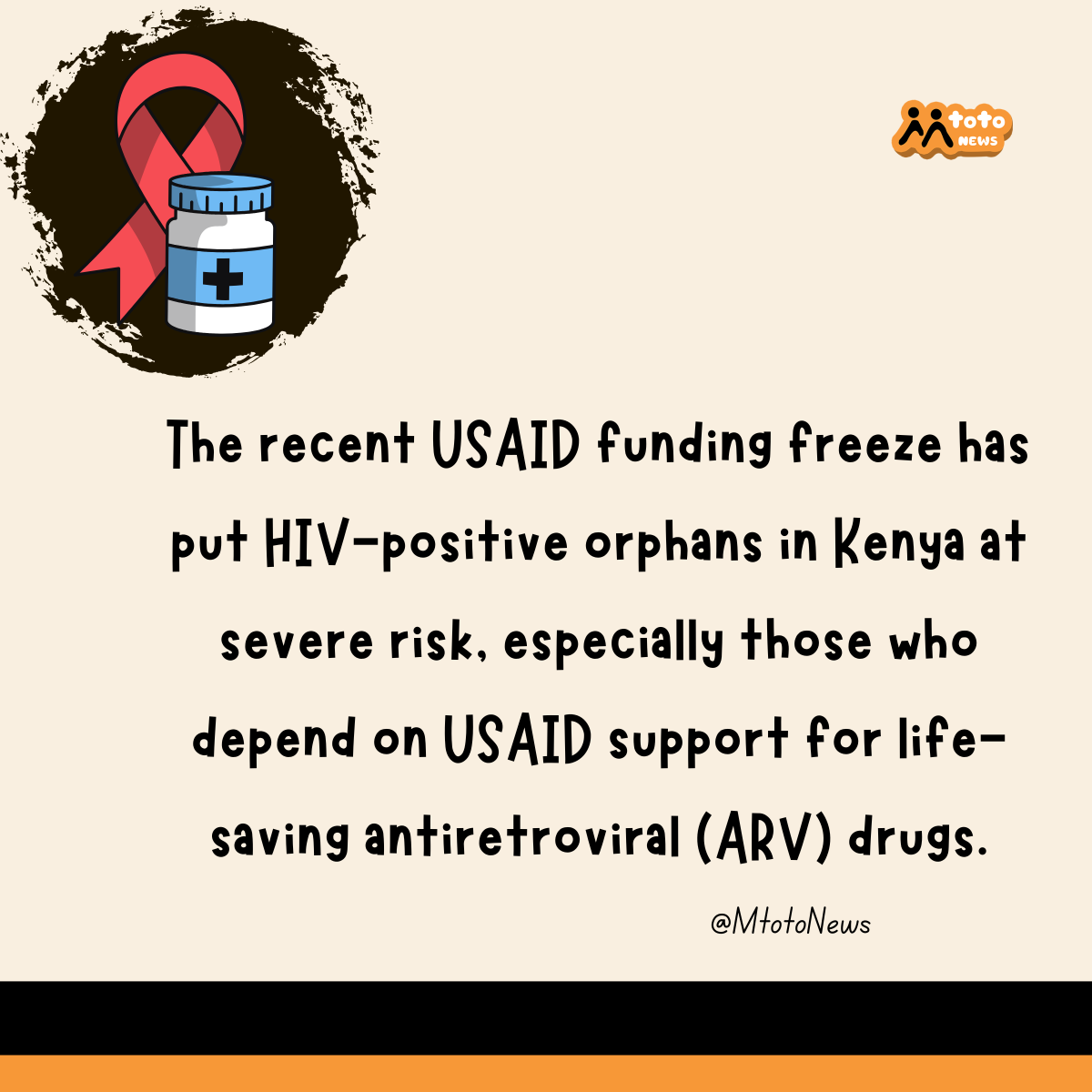Written by Manasseh Githua
The recent USAID funding freeze is putting children living with HIV in Kenya at risk, especially those at Nyumbani Children’s Home in Nairobi. This home takes care of more than 100 children who need special medicine called antiretroviral (ARV) drugs to stay healthy. These medicines help control the virus so the children can grow strong and not get sick easily. However, the funding that helps buy these medicines has been stopped, which means that in about six months, they might run out.
Without their medicine, the virus in their bodies could grow stronger, making them very sick. Their immune systems, which help fight off diseases, would become weak. This could lead to serious illnesses like tuberculosis, pneumonia, and other infections. If they stop taking their medicine and then restart later, their bodies might not respond to the medicine the same way, making it harder to treat them.

Many children and adults across Africa depend on programs like PEPFAR (President’s Emergency Plan for AIDS Relief), which has helped save millions of lives. If the funding is not restored, many children like those at Nyumbani may suffer. People around the world, including doctors and human rights groups, are asking the U.S. government to restart the funding so that these children can continue receiving their life-saving medicine and stay healthy.

